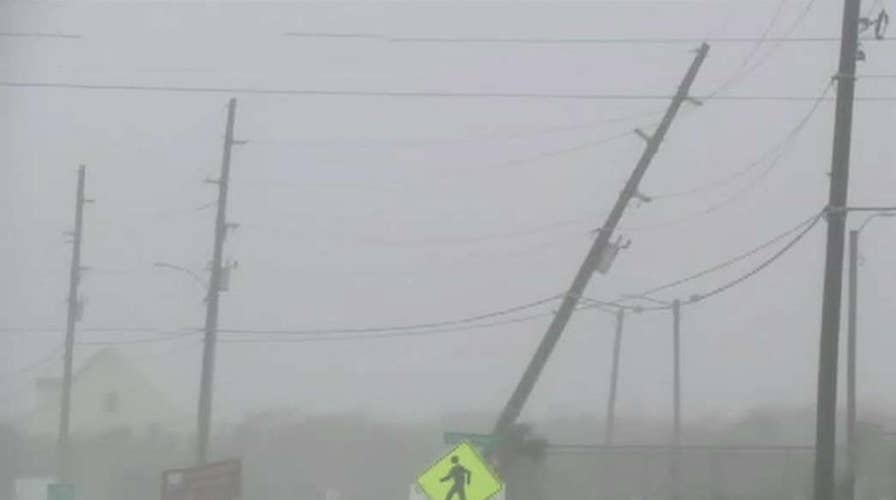Team Rubicon: We're ready to help with Florence recovery
North Carolina faces severe flooding after being hit by hurricane-turned-tropical storm; Team Rubicon brings volunteers to help with the aftermath.
“Daddy, where is God during the hurricane?”
This is the question my five-year-old son asked me yesterday. We were huddled together on the porch with my wife Lauren and our two daughters, watching the pine trees in our back yard being whipped around by the wind.
It’s a good question.
If God is as good and as powerful as the Bible says he is, then why would he allow a hurricane like Florence to devastate the Carolina coast, where it has taken the lives of at least seven people already and made thousands of other people homeless? Where is God during the hurricane?
Lauren and I struggled to give a response that would satisfy the curiosity of a five-year-old. But as difficult as it is to grapple with the existence of natural evils, there are some lessons we can all learn in the midst of their devastation.
While natural disasters bring tragedy, they also can bring out the best in humanity.
The first is that God does not delight in disaster. When God created the world, he ordered it in such a way that human beings could flourish. The Bible’s creation account repeatedly refers to the world as “good” and “very good.” And at the time of creation, human beings had a perfect relationship with God, with each other, and with the world around them.
It was not God who broke this perfect paradise, but humans. Through the sin of Adam and Eve—a sin in which we all share—evil unthinkable was unleashed upon our world. Even the natural world was poisoned by this first rebellion, transforming from a place of peace into a realm of danger.
A second lesson Florence may teach us is of the greatness of God. Even as we stand in awe of the overwhelming power of hurricane-force winds and deluges of water, we should remember that there is nothing more powerful than God and his words. God created the wind and the waves.
As Jesus demonstrated when he lived among us, the wind and waves still obey his voice. The disciples of Jesus were not warmed and comforted by this fact. They saw in Jesus a power more astounding than a hurricane, and it led them to a more profound fear (cf. Mark 4:41). When we stand before the power of the storm, we should let our feelings of fear and awe remind us of our dependence on God.
Third, while natural disasters bring tragedy, they also can bring out the best in humanity. We’ve already heard several stories of heroism and sacrifice during Hurricane Florence. On Saturday morning, we learned of rescuers who risked their lives to trying to save a family trapped underneath a fallen tree and collapsed roof. On Saturday afternoon, there were reports that thousands of volunteers—through organizations such as Samaritan’s Purse and North Carolina Baptist Disaster Relief—have joined emergency teams to provide medical assistance, makeshift shelters, and hot meals for victims of the disaster. Thousands of other stories of bravery and compassion will be written in the days to come.
Fourth, in light of such acts of love and courage, a hurricane such as Florence could be a catalyst to bring some healing to our deeply divided nation. In the midst of the gale-force winds and surging water, Americans of every political stripe are working together to rescue the trapped, heal the wounded, and feed the hungry. As a country, we are never greater than when we respond to disaster with unity. And we can only hope that, once the wind and rain have ceased, we can find a way to reach across the aisle to bring some healing to our social, cultural, and political wounds.
In the end, the most powerful answer to, “Where is God in the midst of Hurricane Florence?” is, “He is right here with us.” As I tried to explain to my small children, God entered the suffering of our world on a mission to end it. Not only is he familiar with tragedy and loss, but he willingly laid down his life to put evil to death forever. Jesus’ death on the cross proves the lengths he will go to identify with us in our suffering. And his resurrection provides a down payment on his promise to return one day to put an end to suffering once-and-for all.
In the meantime, before he returns, these evils offer us an opportunity to respond to the needs of our world with courage, faith, and love. And that is something that even a five-year-old can understand.
